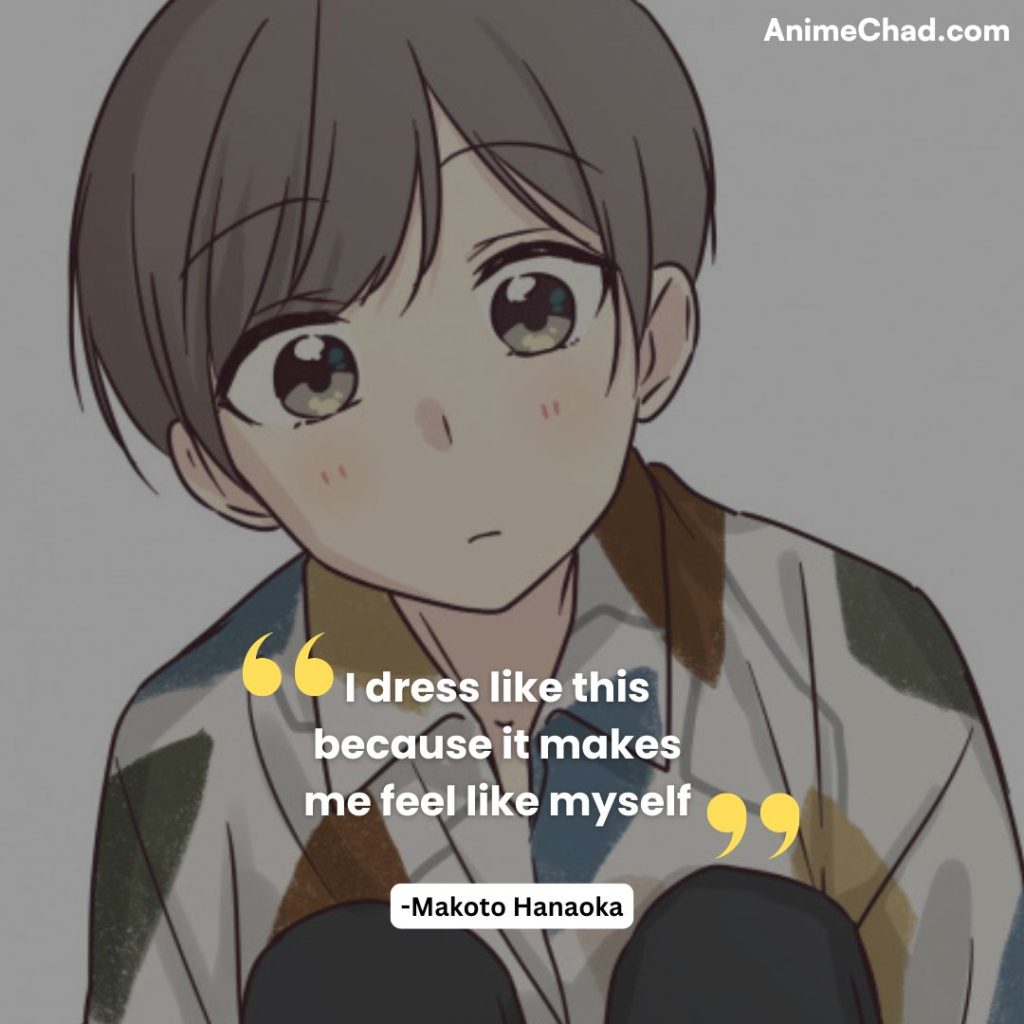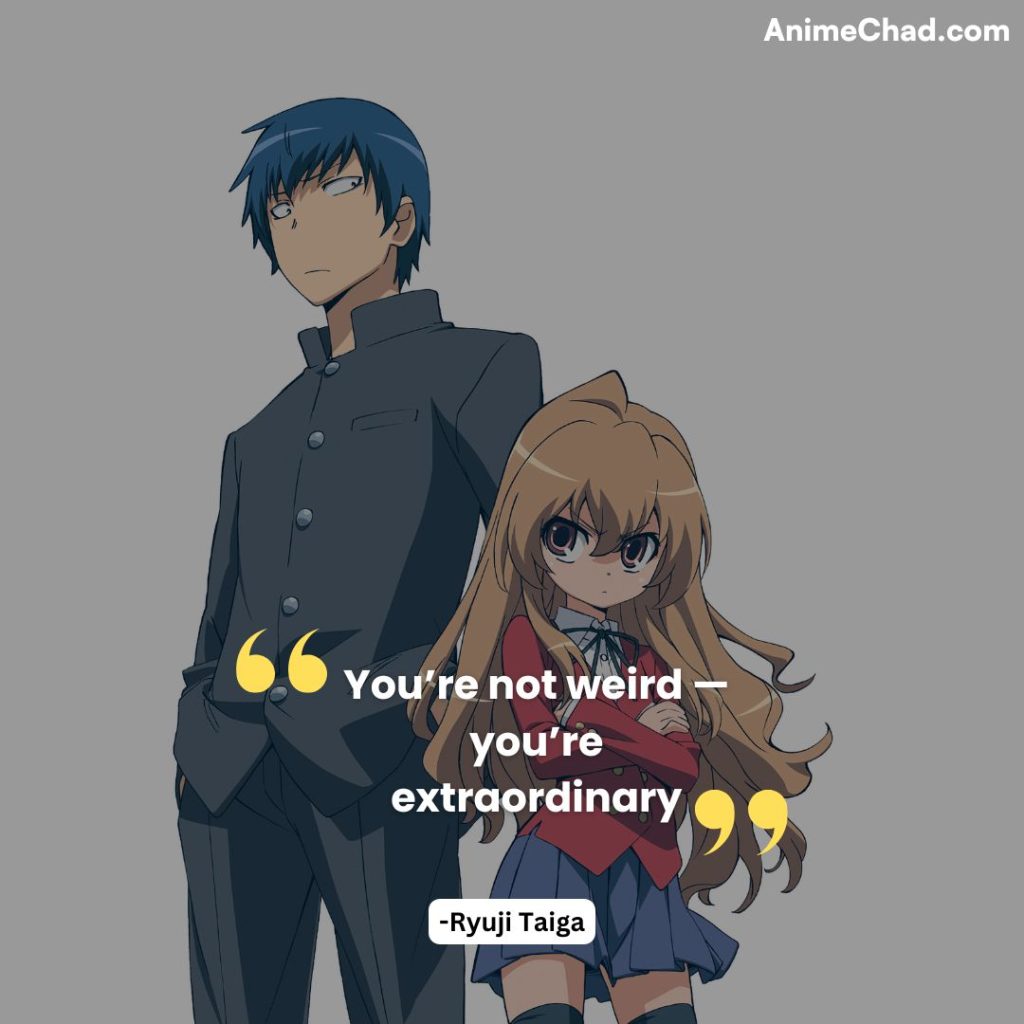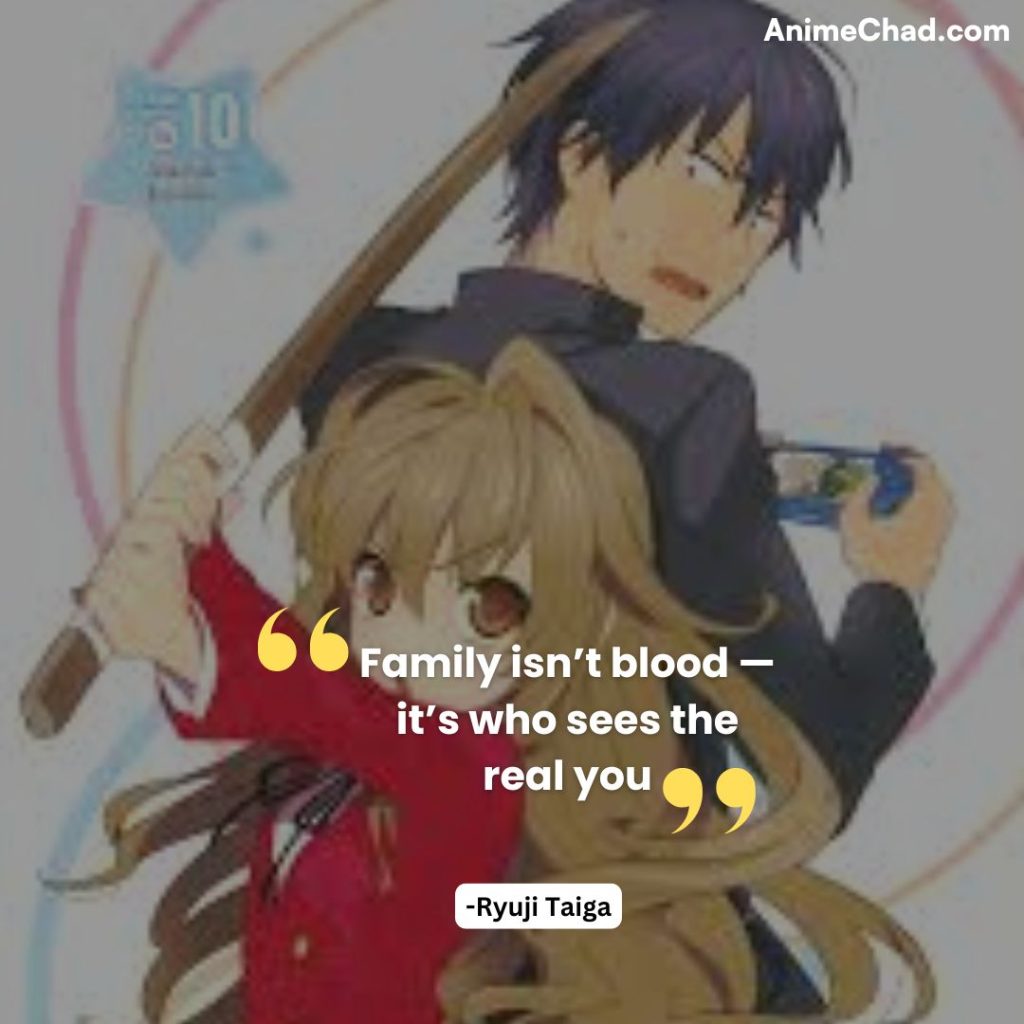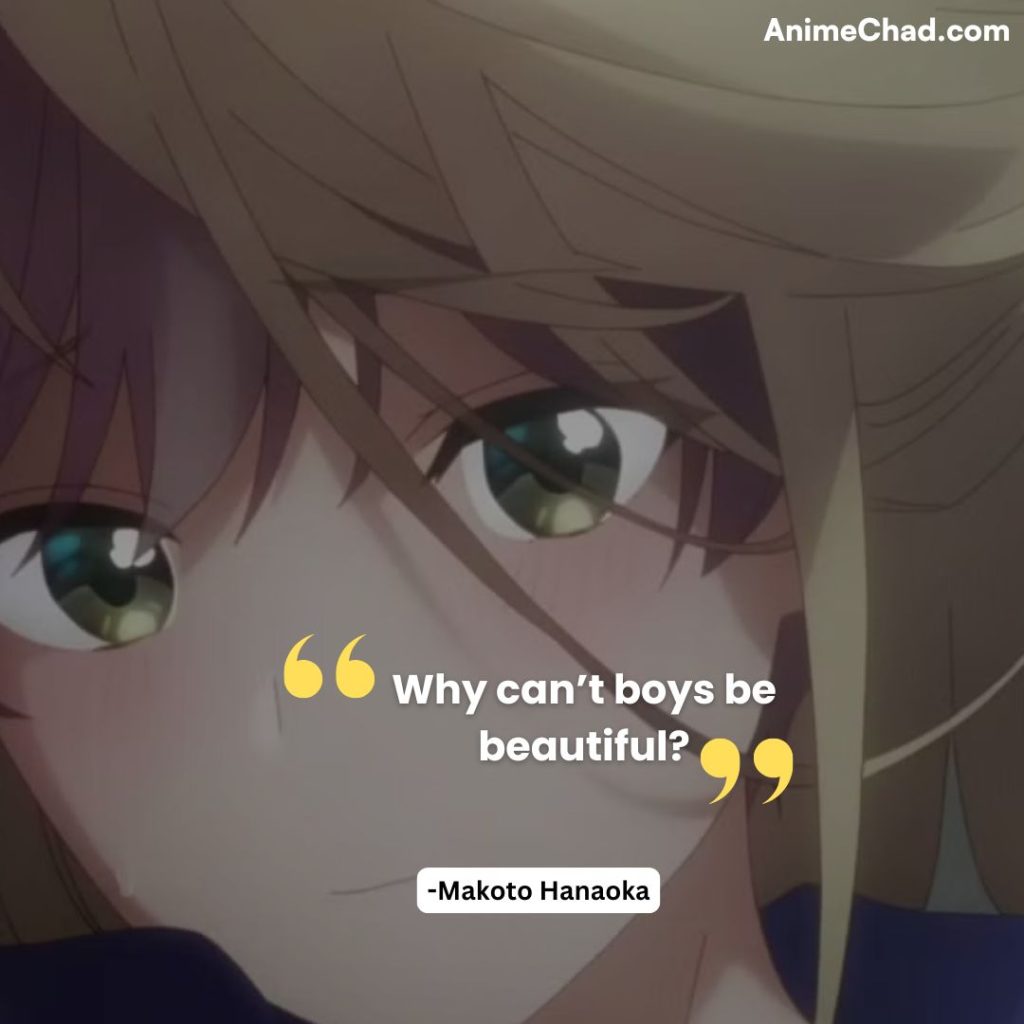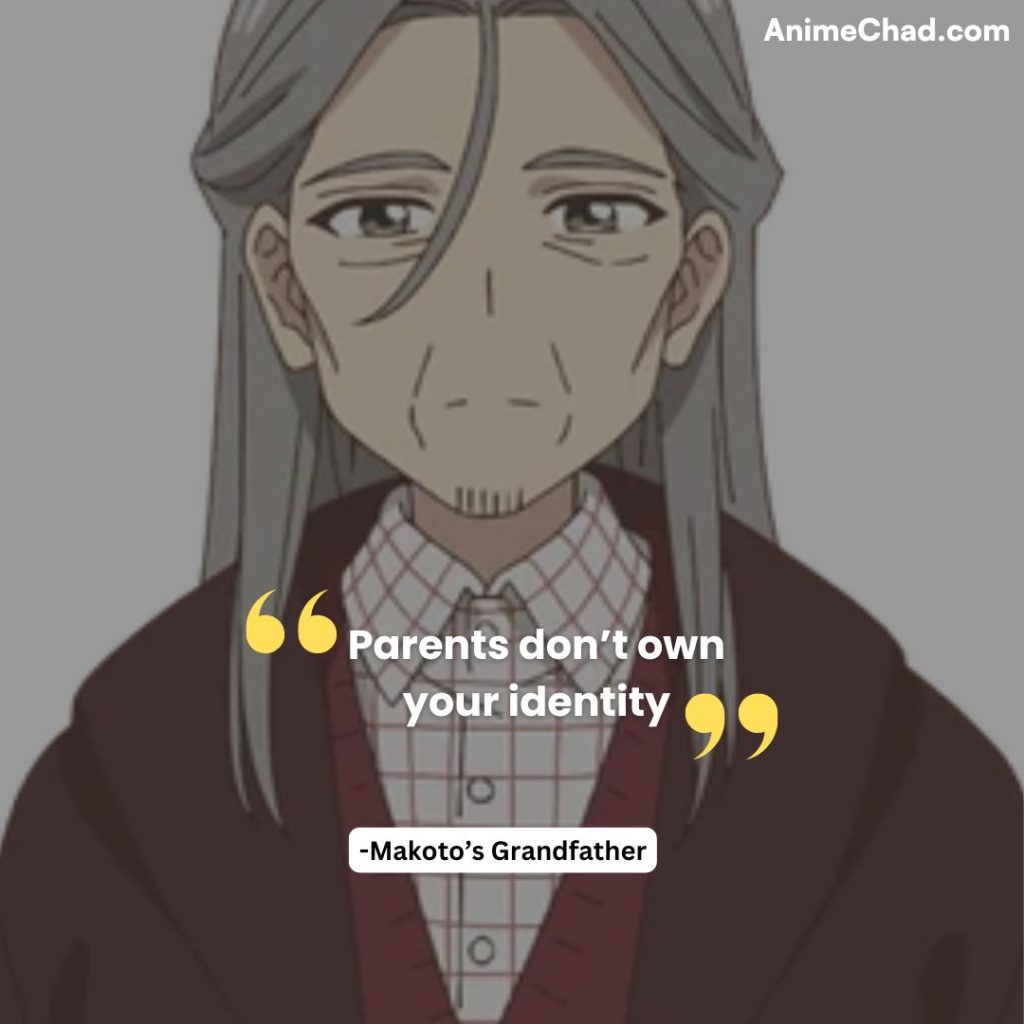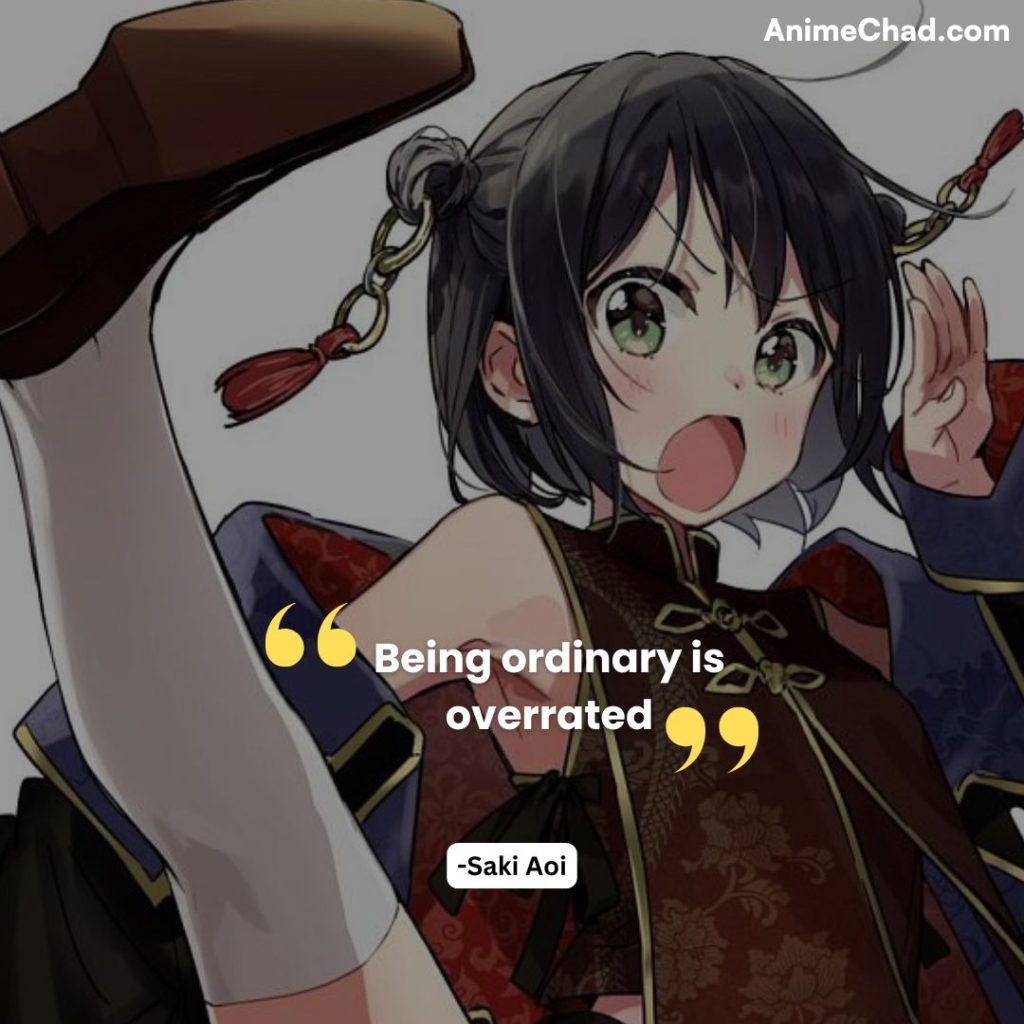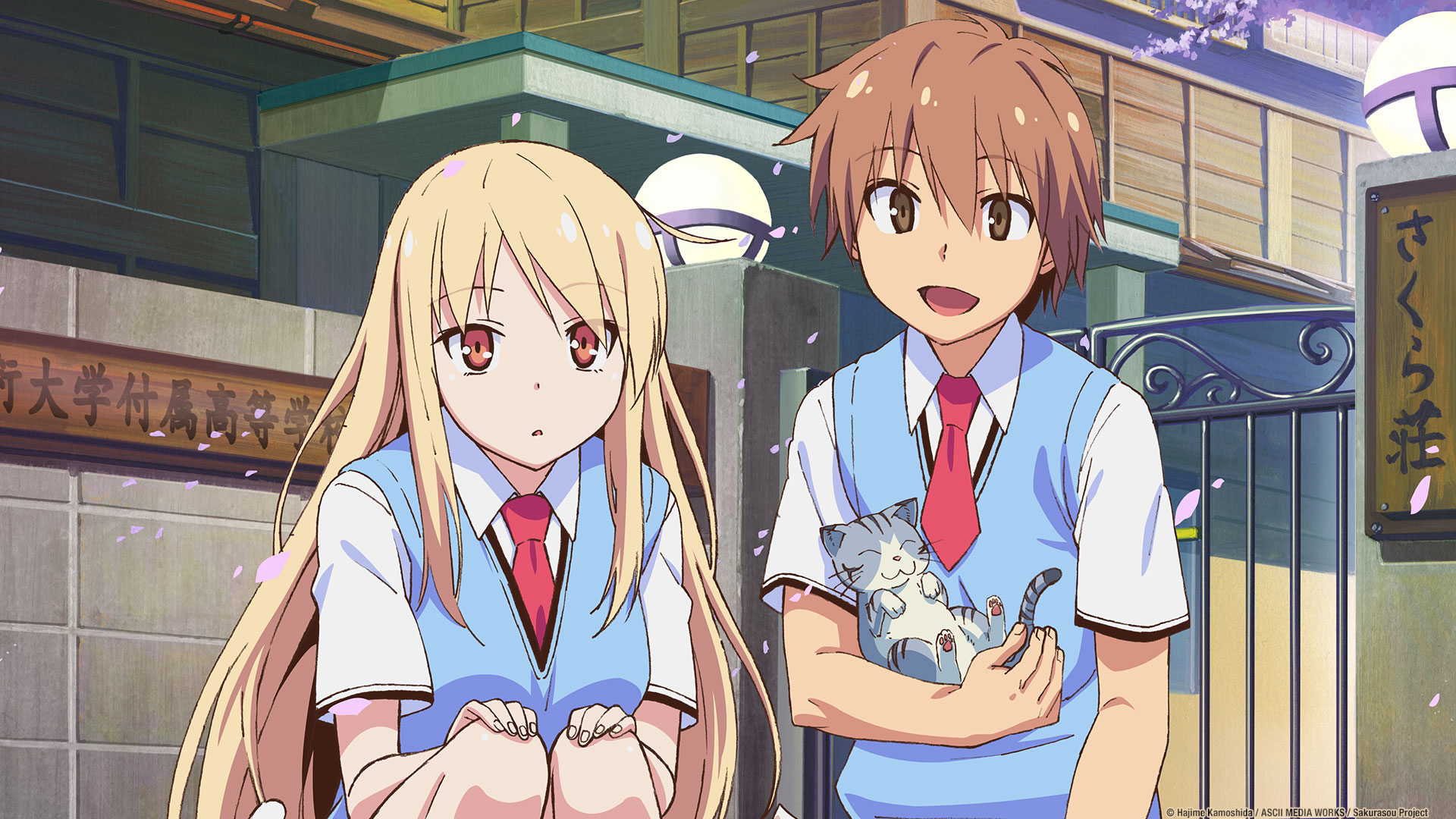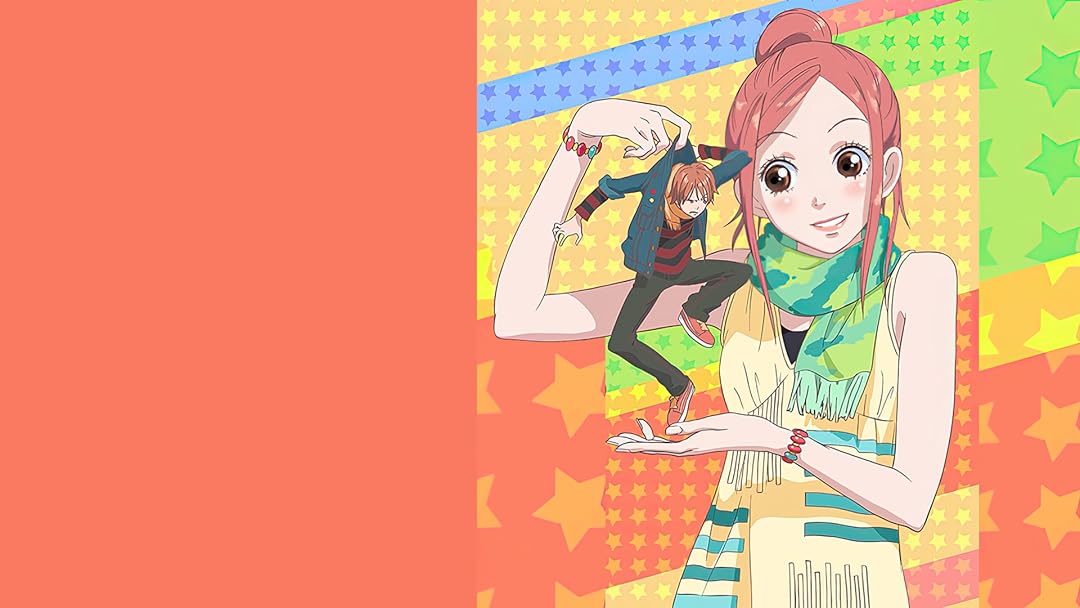Senpai Is an Otokonoko follows Makoto Hanaoka, a cross-dressing high school student navigating love and identity alongside Saki Aoi’s bold affections and Ryuji Taiga’s conflicted loyalty.
The series explores themes of gender fluidity, self-acceptance, and love transcending societal norms.
This curated list highlights pivotal quotes that capture emotional growth and the show’s core messages.
Hanaoka Makoto-senpai! I’m in love with you, please go out with me!
Episode 1 (“Senpai Is an Otokonoko”)
Saki Aoi
Saki’s fearless confession initiates the central love triangle while challenging gender assumptions.
Everyone is a little in their own way
Light Novel Vol. 1 (Chapter 2)
Makoto Hanaoka
Makoto’s self-reflection normalizes individuality, framing the series’ celebration of nonconformity.
What would you do if I wanted to be a girl?
Episode 6 (“Insectile Consolation”)
Makoto Hanaoka
Vulnerable question to father, marking Makoto’s exploration of gender identity beyond cross-dressing.
I dress like this because it makes me feel like myself
Episode 3 (“Goodbye, Me”)
Makoto Hanaoka
Declares autonomy over self-expression during a pivotal identity crisis.
Love doesn’t need labels — it needs courage
Episode 12 (“Final Act’s First Scene”)
Saki Aoi
Saki’s intercom confession redefines romance through radical acceptance.
You’re not weird — you’re extraordinary
Light Novel Vol. 2 (Chapter 5)
Ryuji Taiga
Ryuji counters Makoto’s insecurities, affirming their bond beyond societal judgment.
Cute things aren’t gendered — they’re for everyone
Episode 5 (“Special”)
Makoto Hanaoka
Challenges toxic masculinity while shopping with mother, signaling her gradual acceptance.
I’ll love every version of you
Episode 8 (“Margin Notes”)
Saki Aoi
Rejects Makoto’s fears of rejection, solidifying her pansexual perspective.
Family isn’t blood — it’s who sees the real you
Episode 10 (“Cultural Festival Ghost Lights”)
Ryuji Taiga
Ryuji’s definition of family comforts Makoto during maternal conflict.
Why can’t boys be beautiful?
Light Novel Vol. 3 (Intermission)
Makoto Hanaoka
Rhetorical challenge to gender norms during a cultural festival preparation.
My clothes don’t define my heart
Episode 7 (“Unwritten Rules of Defeat”)
Makoto Hanaoka
Clashes with conservative peers, asserting identity beyond appearance.
You taught me love isn’t about winning
Episode 12 (“Final Act’s First Scene”)
Ryuji Taiga
Ryuji’s bittersweet acceptance of unrequited feelings completes his emotional arc.
I’m not a girl or a boy — I’m Makoto
Light Novel Vol. 4 (Epilogue)
Makoto Hanaoka
Nonbinary declaration symbolizing ultimate self-acceptance.
Confusion is part of growing up
Episode 9 (“Literature Club’s Hidden Script”)
Sayo Konuki (School Doctor)
Mentor’s wisdom validates the trio’s struggles with identity and desire.
You’re my first love — in every universe
Episode 4 (“I Realized Something”)
Saki Aoi
Saki’s unwavering devotion despite rejection underscores the series’ romantic idealism.
Masculinity shouldn’t be a prison
Light Novel Vol. 1 (Afterword)
Makoto’s Father
Father’s support contrasts maternal disapproval, advocating emotional freedom[55].
Friendship is love without conditions
Episode 11 (“Audition for Tomorrow”)
Ryuji Taiga
Ryuji redefines his relationship with Makoto, prioritizing companionship over romance.
I hated myself until you looked at me
Episode 2 (“Cute Things Pilgrimage”)
Makoto Hanaoka
Reveals Saki’s impact on their self-worth during a vulnerable conversation.
Cross-dressing isn’t a phase — it’s my truth
Light Novel Vol. 2 (Chapter 7)
Makoto Hanaoka
Defiant response to maternal criticism, asserting permanent self-identity.
Your ‘weirdness’ is what makes you perfect
Episode 6 (“Insectile Consolation”)
Saki Aoi
Saki reframes Makoto’s uniqueness as strength during a moment of doubt[55].
We’re all just trying to be seen
Episode 5 (“Special”)
Ryuji Taiga
Ryuji’s empathy bridges Saki and Makoto’s emotional isolation.
Love means fighting for someone’s happiness
Episode 12 (“Final Act’s First Scene”)
Saki Aoi
Saki’s selfless ethos culminates in supporting Makoto’s choices.
I don’t need labels — I need you
Light Novel Vol. 3 (Chapter 4)
Makoto Hanaoka
Rejects societal pressure to define their relationship with Saki[51].
Parents don’t own your identity
Episode 7 (“Unwritten Rules of Defeat”)
Makoto’s Grandfather
Grandfather’s validation empowers Makoto to defy maternal expectations.
Being ordinary is overrated
Episode 1 (“Senpai Is an Otokonoko”)
Saki Aoi
Saki’s rejection of mediocrity sets the series’ celebratory tone.
Thank you for letting me exist as I am
Light Novel Vol. 4 (Final Chapter)
Makoto Hanaoka
Gratitude to friends marks Makoto’s journey to self-actualization.





